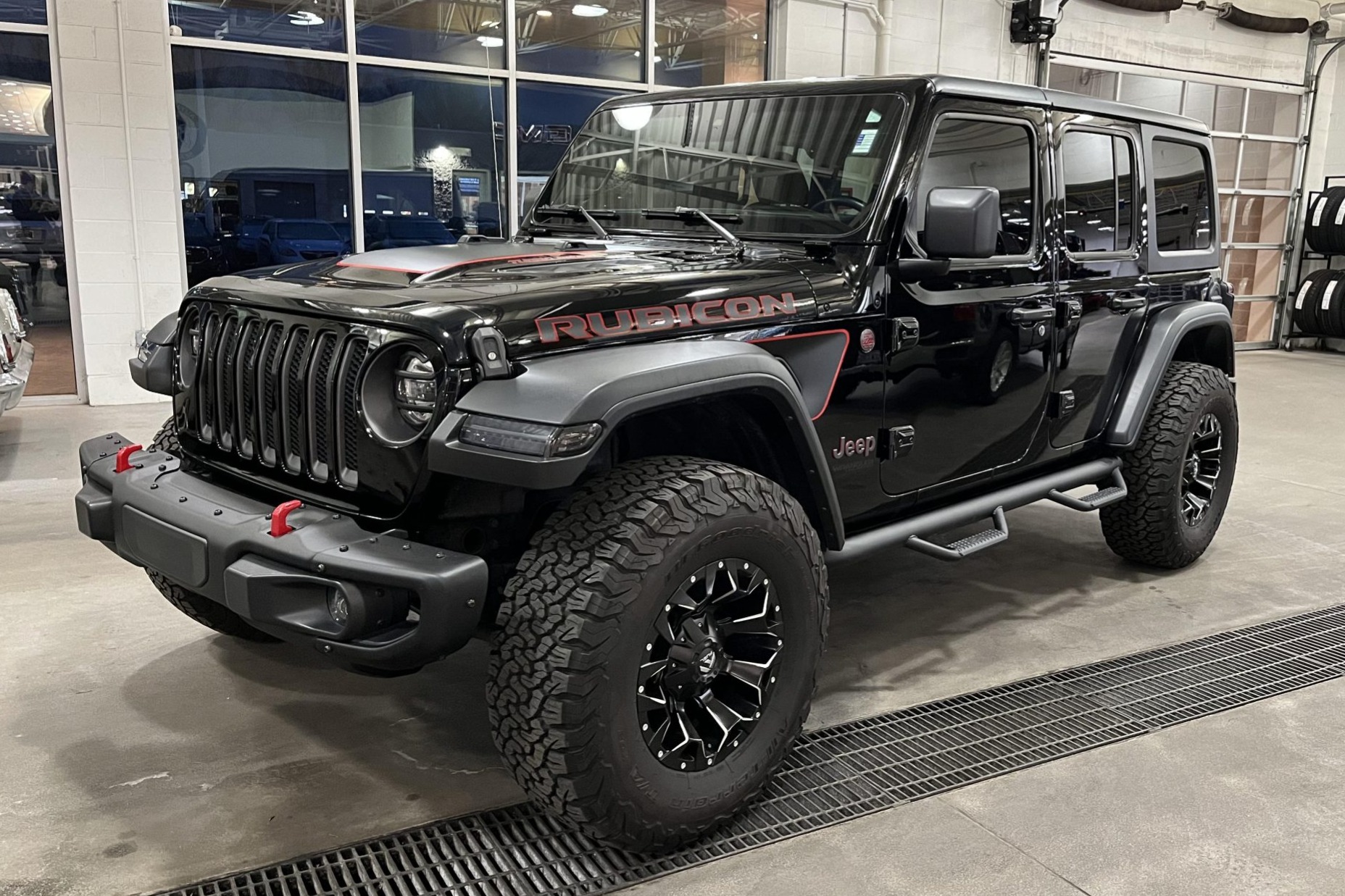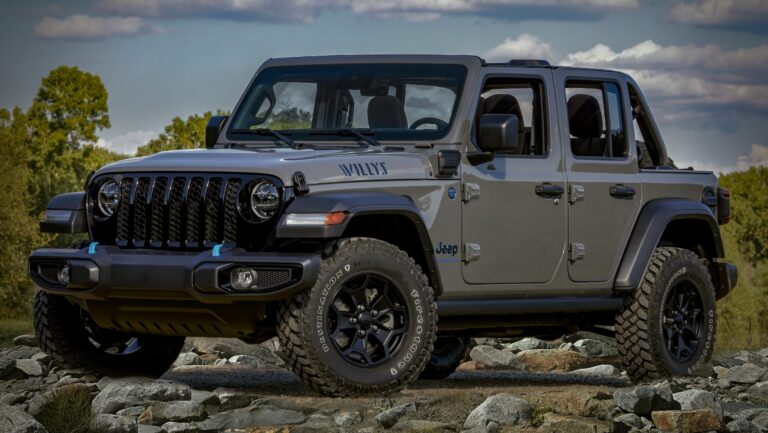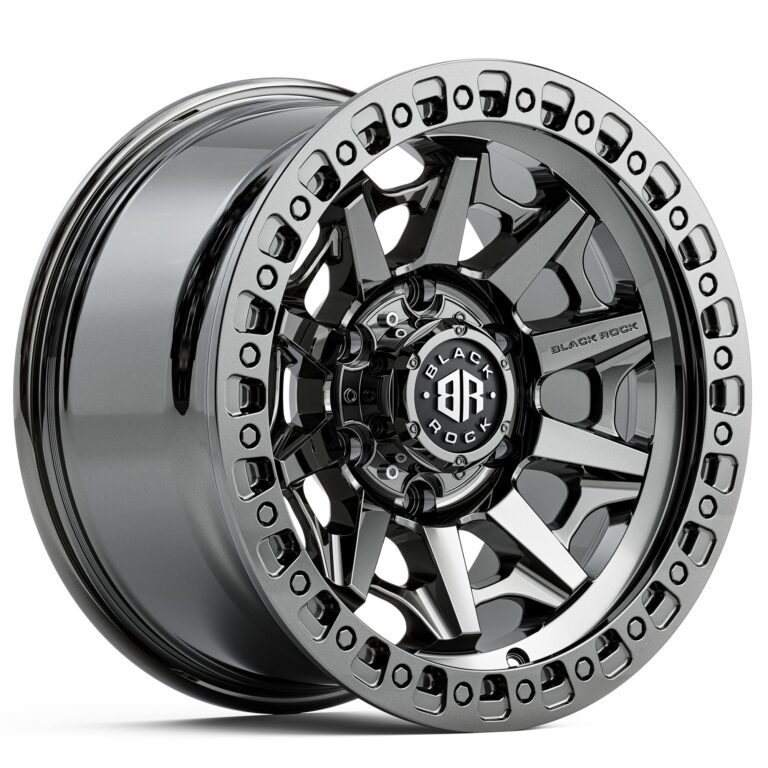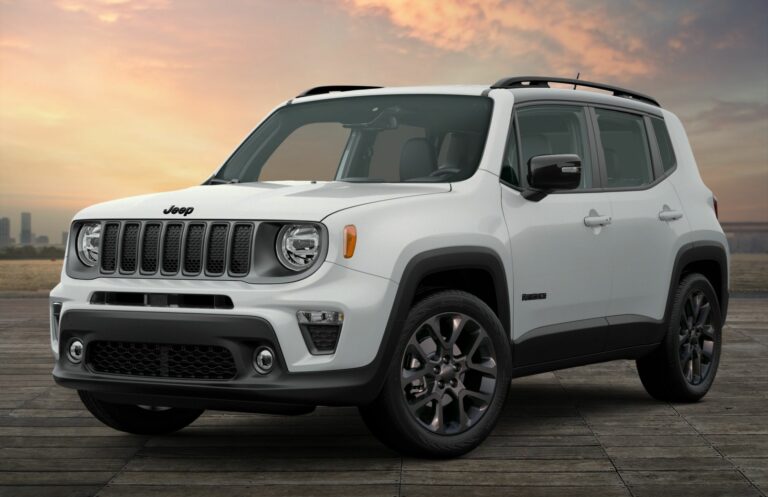Jeep JK Diesel For Sale: Your Comprehensive Guide to Finding and Owning a Torque Monster
Jeep JK Diesel For Sale: Your Comprehensive Guide to Finding and Owning a Torque Monster jeeps.truckstrend.com
The Jeep Wrangler JK (2007-2018) is an icon, a symbol of freedom and off-road capability. While the vast majority of JKs sold in North America came equipped with gasoline engines (the 3.8L V6 and later the 3.6L Pentastar V6), a unique and highly sought-after variant exists: the Jeep JK Diesel. These aren’t factory options for the US market, but rather meticulously crafted conversions, often boasting enhanced performance, impressive fuel economy, and the unmistakable growl and torque of a diesel engine. For the discerning enthusiast seeking something truly special, a JK diesel offers an unparalleled blend of rugged utility and efficient power. This guide will delve into everything you need to know about finding, evaluating, and owning one of these rare and desirable machines.
Jeep JK Diesel For Sale: Your Comprehensive Guide to Finding and Owning a Torque Monster
I. Why Choose a Diesel JK? Understanding the Appeal
The allure of a diesel-powered Jeep JK is multifaceted, appealing to both off-roaders and daily drivers alike:
- Unmatched Torque: Diesel engines are renowned for their prodigious low-end torque. This translates directly into superior crawling ability on challenging trails, effortless towing of trailers or boats, and robust acceleration even with heavy modifications.
- Improved Fuel Efficiency: While not a "hybrid" in terms of mpg, a diesel JK will typically offer significantly better fuel economy than its gasoline counterparts, especially on the highway. This extends range, crucial for overland adventures.
- Engine Longevity and Durability: Diesel engines are often built to withstand higher compression ratios and operate at lower RPMs, contributing to a longer lifespan when properly maintained. They are known for their rugged reliability.
- Unique Factor and Individuality: Owning a diesel JK sets you apart from the crowd. It’s a conversation starter and a testament to a custom build, showcasing a passion for unique and high-performing vehicles.
- Overlanding Potential: The combination of torque, range, and durability makes a diesel JK an ideal platform for extended overland trips, allowing you to carry more gear and venture further off the beaten path.
![]()
II. Common Diesel Engine Swaps for the JK (and OEM Options Abroad)
While the US market didn’t receive a factory JK diesel, other markets (like Europe, Australia, and South America) did. These typically featured the VM Motori 2.8L CRD (Common Rail Diesel) engine, known for its decent power and efficiency. However, in North America, finding a "Jeep JK Diesel For Sale" almost exclusively means looking at a custom engine swap. The most prevalent and reputable swaps include:
- Cummins R2.8 Turbo Diesel: This crate engine from Cummins has become incredibly popular for JK swaps.
- Pros: Renowned Cummins reliability, excellent aftermarket support, relatively straightforward installation (as far as swaps go), good fuel economy, and strong low-end torque. It’s a mechanical engine, which some prefer for its simplicity.
- Cons: Can be louder and less refined than modern diesels, power output might be lower than some desire without significant tuning, and it’s a 4-cylinder, so not as smooth as a V6.
- Mercedes-Benz OM642 (3.0L V6 EcoDiesel): Often sourced from Sprinter vans, Grand Cherokees, or ML/GL-Class vehicles, this V6 diesel offers a more refined and powerful option.
- Pros: Smooth and quiet operation, excellent power and torque, modern technology, good fuel efficiency. It feels more like a factory install due to its sophistication.
- Cons: More complex electronics, potentially higher cost for the engine and swap components, and some units (especially early ones) had known issues with oil cooler seals and DPF (Diesel Particulate Filter) systems. Emissions compliance can be a significant hurdle.
- Other Swaps: Less common but occasionally seen are engines like the Cummins 4BT (older, heavier, very noisy but indestructible), VW TDI engines (lighter, fuel-efficient, but less power for a heavy JK), and even some GM Duramax variants for extreme builds.
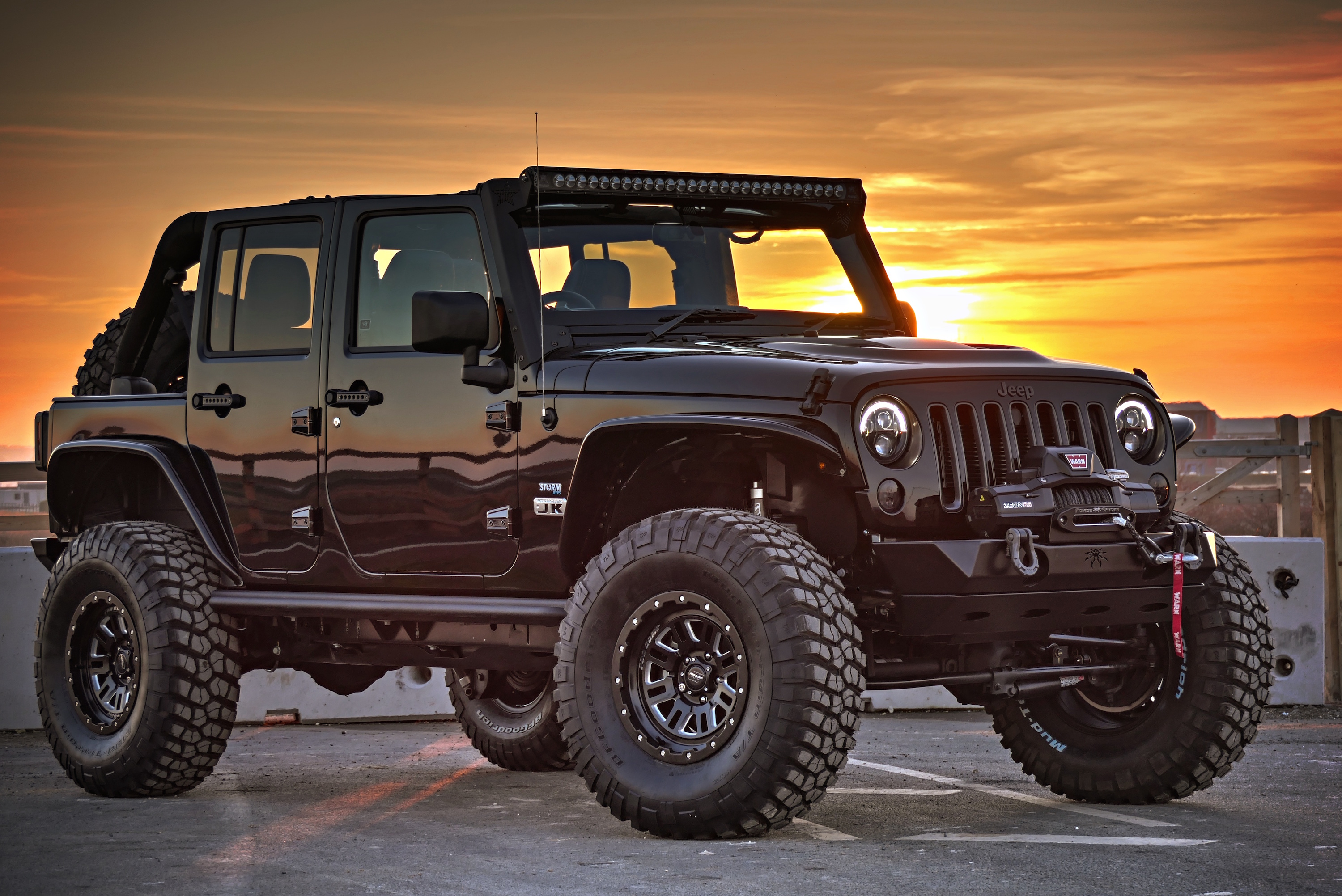
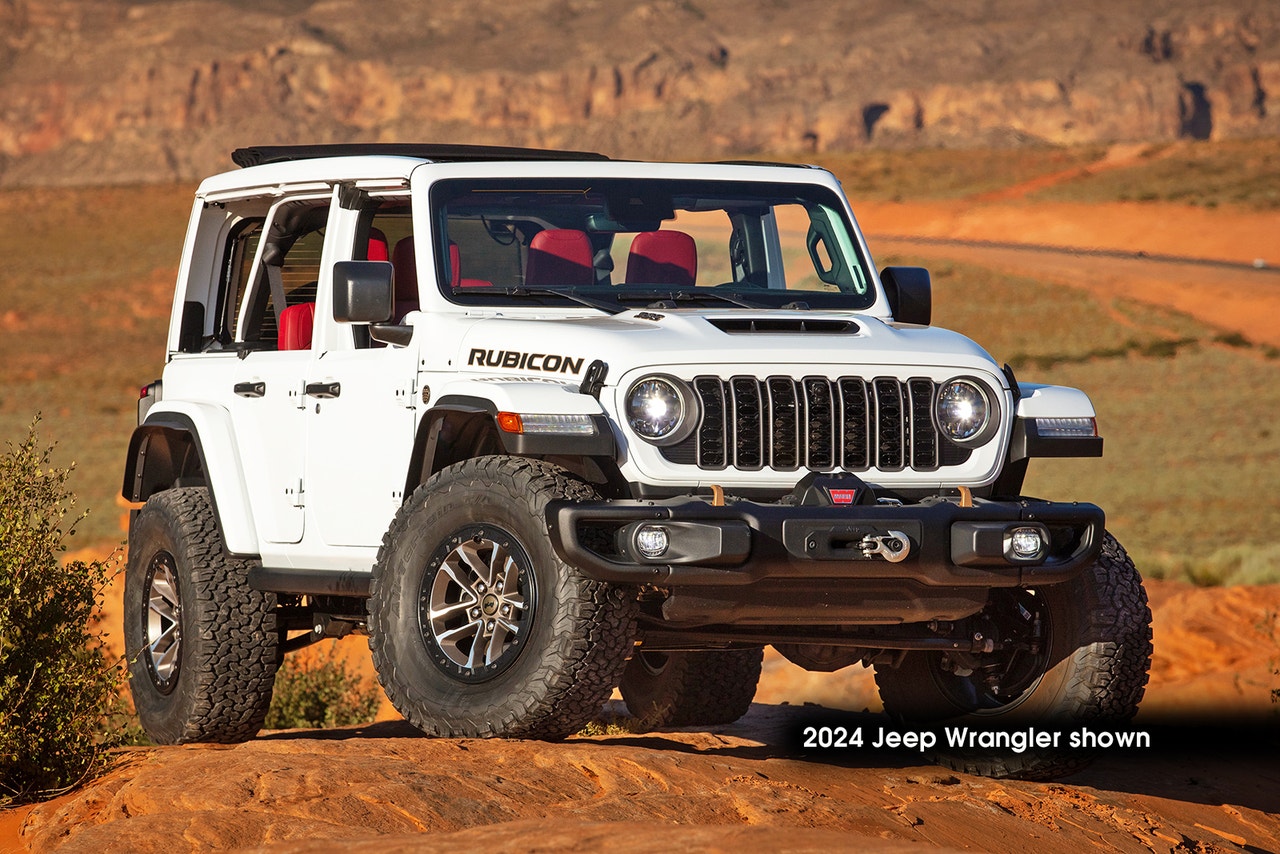
When searching for a "Jeep JK Diesel For Sale," it’s crucial to identify which engine has been swapped in, as this profoundly impacts performance, maintenance, and potential challenges.
III. Where to Find a Jeep JK Diesel For Sale
Due to their custom nature, finding a diesel JK isn’t as simple as visiting your local dealership. You’ll need to cast a wider net:
- Specialty Custom Shops & Builders: Many reputable shops specialize in JK diesel conversions. They often have completed builds for sale or can build one to your specifications. Look for shops like MoTech, Bruiser Conversions (though they often focus on LS/Hemi), or local 4×4 fabrication shops.
- Online Marketplaces:
- Facebook Marketplace/Groups: Search specific Jeep JK groups, diesel swap groups, or overland vehicle groups. Many private sellers list their custom builds here.
- Craigslist/Local Classifieds: Use specific search terms like "Jeep JK diesel," "JK Cummins swap," "JK EcoDiesel."
- Dedicated Forums: Websites like JK-Forum.com, ExpeditionPortal.com, and specific diesel forums (e.g., Cumminsforum.com) often have "For Sale" sections where enthusiasts list their vehicles.
- Auction Sites: High-quality, well-documented builds occasionally appear on sites like Bring a Trailer or eBay Motors. These platforms often provide extensive photo galleries and detailed histories.
- Word-of-Mouth: Networking within the off-road and diesel communities can lead to leads on vehicles that aren’t publicly advertised. Attend local Jeep meets or 4×4 events.
IV. What to Look For: Key Inspection Points When Buying
Purchasing a swapped vehicle requires a more diligent inspection than a factory-built one. Here’s what to prioritize:
- Engine Swap Quality: This is paramount.
- Who Performed the Swap? Was it a reputable shop with experience, or a backyard mechanic? Ask for documentation, receipts, and even contact information for the builder if possible.
- Wiring Harness: Is it clean, well-routed, and properly integrated? Look for loose wires, exposed connections, or shoddy splices. A quality harness (e.g., from MoTech or Hotwire Auto) is critical.
- Engine Mounts & Adapter Plates: Are they robust, properly aligned, and designed for the specific engine?
- Cooling System: Has it been adequately upgraded for the diesel? Look for larger radiators, auxiliary fans, and proper hose routing. Overheating is a common issue with poor swaps.
- Fuel System: Correct fuel pump, filters, and lines for diesel.
- Exhaust System: Proper routing, clearances, and any emissions equipment (DPF/DEF) if applicable.
- Engine Health:
- Leaks: Check for oil, coolant, or fuel leaks.
- Noises: Listen for unusual knocking, ticking, or whining.
- Smoke: White smoke (coolant), blue smoke (oil), or black smoke (unburnt fuel) can indicate problems.
- Maintenance Records: Crucial for any diesel. Look for regular oil changes (using correct diesel-specific oil), fuel filter replacements, and any major service (e.g., timing belt on certain engines).
- Transmission & Drivetrain:
- Compatibility: Ensure the transmission and transfer case are compatible with the diesel engine’s torque. Many swaps require a stronger transmission (e.g., 6L80E, NV4500) or upgraded components.
- Shift Quality: Smooth shifts, no slipping or grinding.
- Axles: Check for upgraded axles if the vehicle is heavily modified or intended for serious off-roading, as the diesel’s torque can stress stock components.
- Chassis & Suspension: Standard JK checks apply: rust (especially on the frame), bent components, condition of lift kits (if installed), steering components, and proper alignment.
- Electronics & Gauges: Do all gauges work correctly? Are there any persistent check engine lights (CELs) or error codes? Ensure the speed sensor, ABS, and cruise control function.
- Emissions Compliance (Crucial for OM642/Newer Diesels): Understand your state’s emissions testing requirements. Many diesel swaps will not pass standard gasoline emissions tests. If the diesel engine is modern (e.g., OM642), it likely came with DPF, EGR, and possibly DEF systems. Have these been retained and are they functional, or have they been "deleted" (which may be illegal for road use in your state)?
- Test Drive: Evaluate power delivery, braking, steering, and overall feel. Pay attention to any vibrations, odd noises, or unusual handling characteristics.
V. Important Considerations & Potential Challenges
While a diesel JK is appealing, be aware of the potential hurdles:
- Cost: A quality diesel JK swap is expensive. Expect to pay significantly more than a comparable gasoline JK. The engine, adapter plates, wiring harness, transmission work, and labor add up quickly.
- Legality and Emissions: This is the biggest potential headache. State and local laws regarding engine swaps vary wildly. Some states have strict regulations that make registering a diesel-swapped vehicle difficult or impossible, especially if emissions systems have been removed. Research your local laws thoroughly before buying.
- Maintenance and Repair: Diesel engines require specific maintenance and specialized knowledge. Finding a mechanic familiar with your specific swapped engine (e.g., Cummins R2.8 or Mercedes OM642 in a Jeep) might be challenging outside of specialty shops. Parts availability for certain components might also be an issue.
- Resale Value: While sought after by a niche market, the resale value can be highly dependent on the quality of the swap and its documentation. A poorly executed swap can drastically reduce value.
- Insurance: Inform your insurance provider about the engine swap. Some companies may require additional information or have specific policies for modified vehicles.
VI. Tips for a Successful Purchase
- Get a Pre-Purchase Inspection (PPI): This is non-negotiable. Find a reputable 4×4 shop or, even better, a shop specializing in diesel swaps or the specific diesel engine type (e.g., a diesel truck mechanic for a Cummins swap) to perform a thorough inspection.
- Verify Documentation: Ensure the seller has a clear title, registration, and all available records for the engine swap, including receipts for parts and labor. This adds credibility and helps with future maintenance.
- Understand the Engine’s History: If the engine was salvaged, try to get its history. A new crate engine (like the Cummins R2.8) offers more peace of mind.
- Factor in Post-Purchase Costs: Even a well-done swap might have minor issues or require specific maintenance items soon after purchase. Budget for these.
- Be Patient: Quality diesel JKs are rare. Don’t rush into a purchase. Wait for the right vehicle with a documented, professional swap.
Jeep JK Diesel For Sale: Estimated Price Range Table
The price of a Jeep JK Diesel for sale can vary wildly depending on the quality of the swap, the specific engine used, the overall condition of the JK, and the additional modifications (lift, tires, armor, etc.). This table provides a general estimated range.
| Configuration | Engine Type | Estimated Price Range (USD) | Notes |
|---|---|---|---|
| Stock Jeep JK (Gasoline) | 3.6L Pentastar / 3.8L V6 | $12,000 – $30,000+ | For comparison; prices vary based on year, mileage, trim, and condition. |
| Cummins R2.8 Swapped JK | Cummins R2.8 Turbo Diesel (4-cyl) | $35,000 – $65,000+ | Entry-level to well-executed professional swaps. Less complex, good value. |
| Mercedes OM642 Swapped JK | Mercedes-Benz 3.0L V6 EcoDiesel | $45,000 – $80,000+ | More complex, higher performance, and smoother. Price depends heavily on swap quality and engine condition. |
| High-End / Custom Shop Built Diesel JK | Various (R2.8, OM642, etc.) | $70,000 – $100,000+ | Top-tier builds from reputable shops, often with extensive additional modifications and warranties. |
| DIY/Backyard Swap (Buyer Beware) | Various | $25,000 – $40,000 | Can be a bargain, but significantly higher risk of issues, poor integration, and legal problems. |
Note: These prices are estimates and can fluctuate based on market demand, location, vehicle mileage, and the extent of other modifications (e.g., upgraded axles, long-arm kits, winches, premium interiors).
Frequently Asked Questions (FAQ) about Jeep JK Diesel For Sale
Q1: Are all Jeep JK Diesels for sale in the US custom swaps?
A1: Almost exclusively, yes. While a factory JK diesel (with the VM Motori 2.8L CRD) was sold in other markets, importing and registering one in the US is extremely difficult and rare. Therefore, nearly every "Jeep JK Diesel For Sale" you encounter in North America will be a custom engine swap.
Q2: How much does a diesel JK typically cost?
A2: A quality diesel JK swap will typically cost anywhere from $35,000 to $80,000+, depending on the engine used, the quality of the swap, the condition of the base JK, and any additional modifications. Expect to pay a significant premium over a gasoline JK.
Q3: Is it hard to get parts for a diesel swap?
A3: It depends on the engine. For popular swaps like the Cummins R2.8, parts are readily available from Cummins and general auto parts stores. For the Mercedes OM642, parts are available through Mercedes dealers and aftermarket suppliers, but can be more expensive. Specialized swap components (e.g., adapter plates, wiring harnesses) are typically sourced from the swap kit manufacturer.
Q4: What about emissions testing for a diesel JK?
A4: This is a major concern. Regulations vary by state. Some states have no emissions testing for diesels, while others are very strict. If the swapped engine did not originally come in a vehicle of the same type and year, or if emissions equipment (like DPF, EGR, DEF) has been removed, you may face significant challenges with registration and inspections. Always check your local laws before purchasing.
Q5: Can I daily drive a diesel JK?
A5: Absolutely. Many owners daily drive their diesel JKs. The improved fuel efficiency and torque make them excellent for both highway commuting and city driving, in addition to their off-road prowess. However, be prepared for potentially higher maintenance costs and the need for specialized mechanics.
Q6: Is it worth the extra cost for a diesel JK?
A6: For many enthusiasts, yes. The benefits of increased torque for off-roading and towing, better fuel economy, and the unique ownership experience outweigh the higher upfront cost and potential complexities. If your primary use involves heavy off-roading, towing, or long-distance overlanding, the value proposition significantly increases. For a casual daily driver with no specific needs for high torque or range, a gasoline JK might be more practical.
Conclusion
The pursuit of a "Jeep JK Diesel For Sale" is not for the faint of heart, but for the dedicated enthusiast, it represents the ultimate fusion of iconic design and robust, efficient power. These custom-built machines offer a driving experience unlike any factory Jeep, with their immense low-end torque, extended range, and undeniable individuality.
While the journey to finding and owning a diesel JK involves careful research, diligent inspection, and an understanding of the unique challenges associated with engine swaps, the rewards are substantial. A well-executed diesel conversion transforms the already capable JK into an even more formidable off-road beast and a surprisingly efficient daily driver. By approaching the purchase with patience, thoroughness, and the right expert advice, you can unlock the full potential of a diesel-powered Jeep JK and embark on adventures limited only by your imagination.

